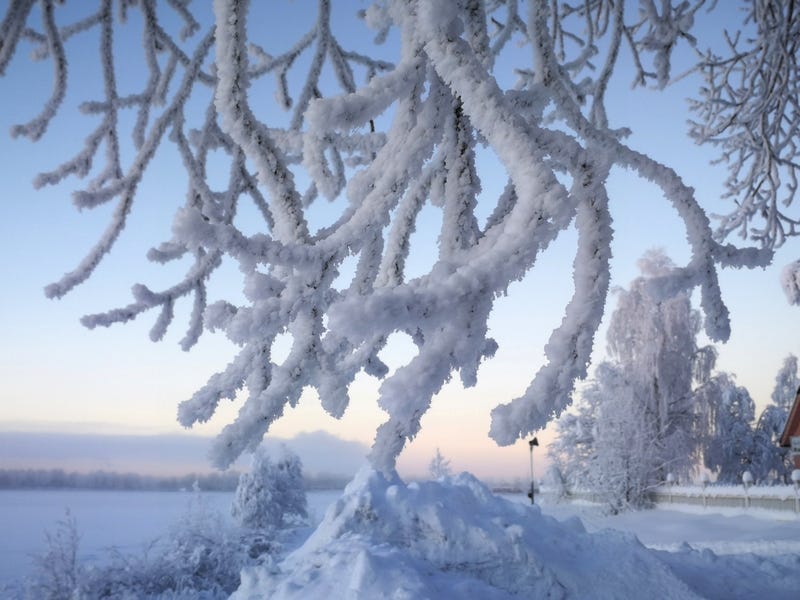
CHICAGO (WBBM NEWSRADIO) -- If you heard loud booming, cracking or even popping noises coming from outside Tuesday night, or even during the day Wednesday, there may be an explanation.
"They're called cryoseisms or frost quakes. Only every so many years does something like this happen," said Derek Witt, Meteorologist, Accuweather.
How does this happen?
Water sinks into the soil and saturates its surroundings. As temperatures drop well below freezing, the saturated material will freeze and expand. As it expands, it puts stress on its surroundings until the pressure has to be relieved and a small explosion happens.
"When you see these cold temperatures on the surface, water will freeze, but there's water underground. It never gets cold enough that far down to freeze the water, but when it gets this cold, these temperatures will permeate into the ground. The water will freeze deep underground and expand and puts stress on the ground around it and it can sometimes be released kind of explosively," Witt said.
"It's a seismic event potentially caused by a sudden cracking action in soil or rock that's frozen due to being saturated with ice or water."
People have been reporting hearing loud booms with these quakes, or in some cases, even feeling the earth shake beneath them or a boom sound from afar.
"Our page is inundated with reports of this stuff," said Adam Lucio, Illinois Storm Chasers.
Frost quakes don't cause any damage, but Witt said if you heard it, consider yourself lucky, cryoseismic booms rarely happen.
"You'll never have a frost quake that cracks a building, but you can have loud booming from the tension and pressure being released from the ground underneath you," Witt said.
Witt said it's weather phenomenon that only happens when it’s this cold.
"It's not a phenomenon many people every get to experience in their lifetime. The good news is that it doesn't have any negative effects on the surface, it just may startle you if you happen to hear it," he said.
"Temperatures have to get really cold and really fast for this to happen," Lucio said. "They're not true earthquakes, but the really intense ones can be registered on seismometers."
